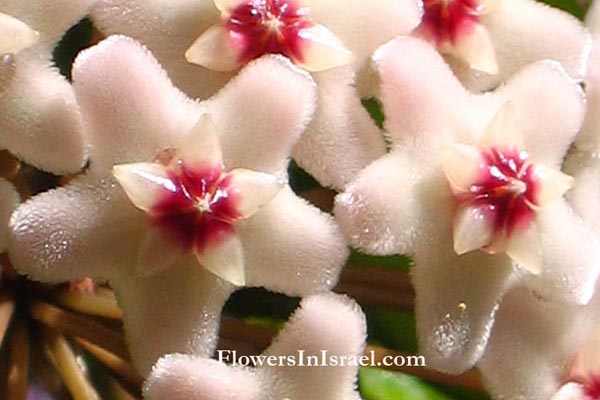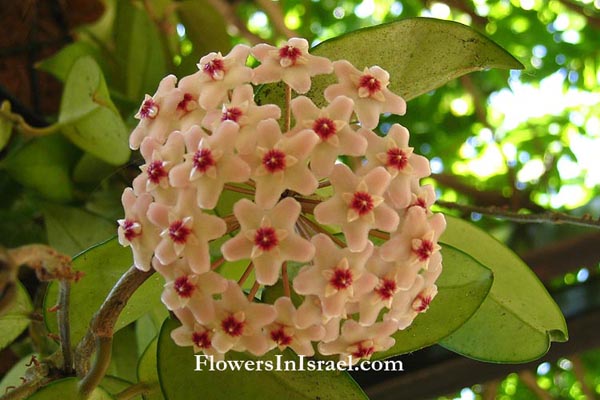Hoya bella, Beautiful Hoya, בת שבע יפה
|
|
| Scientific name: |
| Hoya bella R.Br. |
| Synonym name: |
| Hoya lanceolata ssp. bella (Hook.) D.H.Kent |
| Common name: |
| Beautiful Hoya |
| Hebrew name: |
| בת שבע יפה |
| Family: |
| Asclepiadaceae, אסקלפיים |
|
|
| Life form: |
| Evergreen climbing vines or shrubs |
| Leaves: |
| Alternately, simple, ovate-lanceolate, entire margins succulent |
| Inflorescence: |
| Umbel, from a peduncle, or stem |
| Flowers: |
| 5 thick, waxy, triangular White to pink petals in repeating clusters at the apex of 2-3 cm peduncles |
| Fruits / pods: |
| Follicles |
| Flowering Period: |
| Spring, summer |
| Origin: |
| Southern Asia |

Derivation of the botanical name:
Hoya named for Thomas Hoy (c.1750– 1822), gardener to the Duke of Northumberland at Syon House in Middlesex in the United Kingdom. Botanist Robert Brown (1773 – 1858), a Scottish botanist, named the plant genus Hoya in his honour describing Hoy as someone "whose merits as an intelligent and successful cultivator have been long known to the botanists of this country".
bella, beautiful, handsome.
- The standard author abbreviation R.Br. is used to indicate Robert Brown (1773 – 1858), a Scottish botanist and palaeobotanist.
- The standard author abbreviation Hook. is used to indicate William Jackson Hooker (1785 – 1865), an English systematic botanist and organiser, and botanical illustrator.
- The standard author abbreviation D.H.Kent is used to indicate Douglas Henry Kent (1920 – 1998), an English botanist and plant collector.
|

